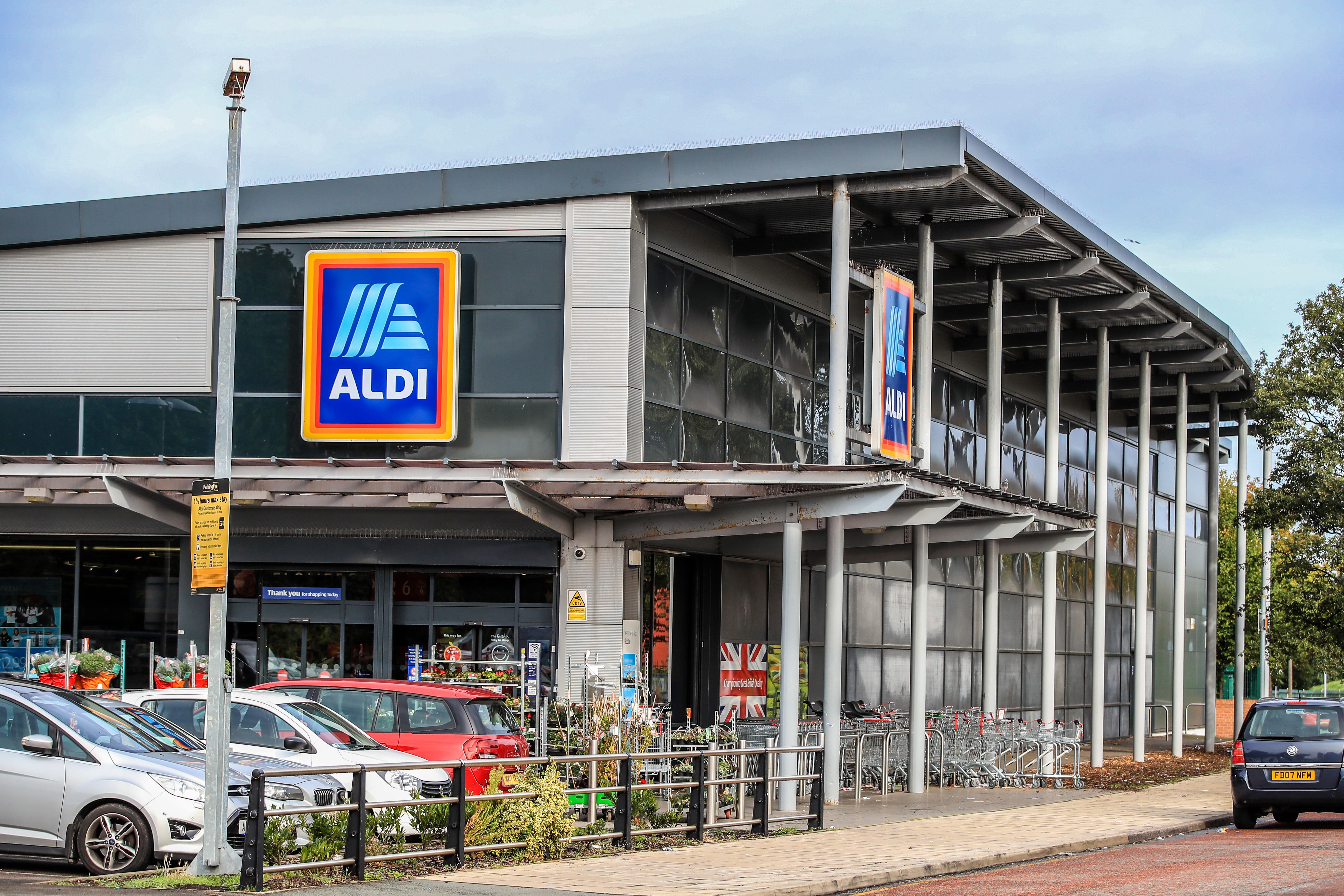Will Aldi eat the big boys’ lunch?
The cost of living crisis is driving consumers away from well-known but expensive brands, writes James Moore. Which is why the bosses of cut-price, own-brand supermarket Aldi are claiming our shopping habits ‘have changed for good’… so are the food and drink giants doomed?


Are high-priced, expensively packaged brands doomed?
The head of Aldi UK, the supermarket chain which has disrupted the UK market and many others in Europe via a model built on aggressive pricing but limited choice, started the week by noisily trumpeting: “Shopping habits have changed for good!”
Giles Hurley, the German outfit’s UK boss, said sales of own brand products (which Aldi majors on) were growing at “twice the rate” of branded goods and predicted that this will continue.
The industry-wide numbers from researcher Kantar have also consistently pointed to a change in shopping habits. Its September report found, for example, that own label sales grew by 9.9 per cent during the preceding four weeks ending 3 September, with supermarket lines now making up well in excess of half of the national shopping basket – 58.9 per cent in total. That compares to 48 per cent a decade ago and 57.1 per cent in 2021.
This represents a long-term £3bn shift in sales away from brands. And Hurley is right that this is likely to continue. Kantar’s measure of grocery price inflation fell to its lowest level in a year at 12 per cent, but its research found 19 out of 20 shoppers were still worried about costs.
Of course, some brands have more pull than others. Take cola. This is a product people tend to be quite loyal to. Supermarket versions are much cheaper than either Coke or Pepsi. A two-litre bottle of sugar-free Tesco’s own goes for 65p vs £1.99 for the brand. But the taste is very different.
There is a similarly large price gap in the case of baked beans (own label 50p compared to Heinz at £1.40 for a similarly sized can). But is the difference in taste as appreciable? Especially if you take the can away and present them on a slice of toast?
Kantar noted that just under a quarter of the population considered themselves to be struggling financially – a very slight drop compared to May – but still a significant number.
The real test will come if inflation continues to fall and the cost of living crisis eases significantly. That won’t happen quickly. But there is a reason why brands become successful despite their premium price. They establish themselves in the public’s consciousness via aggressive marketing: we are bombarded with their ads from cradle to grave. And they are very effective. Coke is it; the real thing. It’s the Pepsi generation. Beanz meanz Heinz and so on.
They won’t surrender their hold without a fight. Unilever, a kingpin of the sector, with brands including Hellmann’s mayonnaise, Persil, Marmite and Ben & Jerry’s, has kept its shareholders happy at a time of increased competition and waning consumer loyalty by increasing its prices. Greedflation? It certainly looks like that. Some of the revenues from this strategy could, however, easily be diverted into the marketing budget when the time is opportune. I expect that will happen too.
But the Aldi model isn’t going away anywhere either. The chain’s UK arm trumpeted total sales of £15.5bn in the year to December 2022, a number which includes a sizeable amount of new space, up from £13.6bn the previous year. Pre-tax profits rolled in at £152.6m compared to £35.7m.
Interestingly, Kantar’s data did show Aldi, and the similarly constructed Lidl, losing some ground to the incumbents for the first time in the 12 weeks to 3 September.
The established players have been upping their game when it comes to price cuts, partly, I suspect, because they’re under the political cosh.
Aldi nonetheless plans to continue opening branches where it can find suitable sites to do so, unveiling plans to invest £1.4bn over two years in “new and improved” stores.
The more the merrier, then?
Here’s where it gets interesting: analysts at Shore Capital argue that Aldi has been “buying market share” through new openings and aggressive pricing (the incumbent supermarket giants quietly make similar claims to any journalist willing to listen).
In a note published on the back of Aldi’s number, Shore raised questions about the returns on the investments Aldi has been making. This is a commercial entity, not a charity, so that matters. Said the note: “What is Aldi’s ultimate agenda in the UK, given it is not a charity, and so is the long-term public good, especially for the British food system’s welfare, served well by... sub-optimal economics?”
Tesco and Sainsbury’s, in particular, stepping up their “price match” programmes designed to blunt Aldi’s advantage is certainly going to make buying market share more expensive.
But in the short term, Aldi opening more outlets can’t help but benefit consumers who need all the help they can get. Competition between the providers of own-label produce is just as good as the competition between own-label and brands.






Join our commenting forum
Join thought-provoking conversations, follow other Independent readers and see their replies
Comments